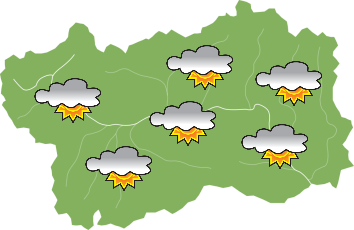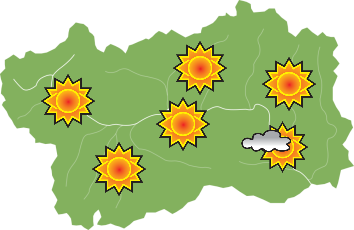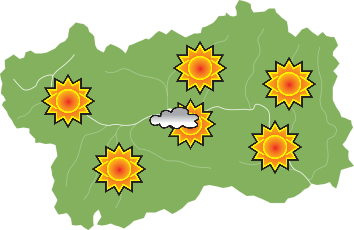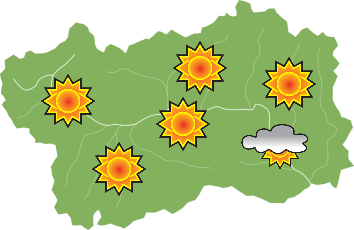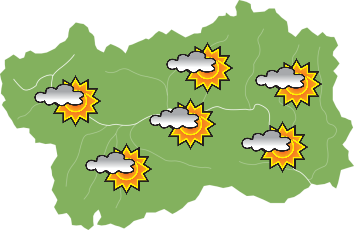The first reliable documents regarding the parish church of Saint James of Issime date back to a Papal bull in 1184, in which it appears among the churches dependant on the Collegiate of Sant’Orso. The parish of Issime, which also included Gaby and the two of Gressoney, was then entrusted to the convent of Saint-Gilles in Verrès, on which it depended until 1674.
Interesting elements:
- the façade, decorated between 1698 and 1700 with the fresco of the Last Judgment, with the wooden portal sculpted at the 17th century, above which there is a niche containing a wooden statue of Saint James, patron saint of Issime together with Saint Sebastian;
- the fifteen little chapels in the churchyard, painted with the Mysteries of Jesus;
- the main altar in Baroque style realized at the beginning of the 18th century, decorated by 182 statues and angels in gilded wood.
The sacred art museum
Dressed at the bottom of the church, it was inaugurated in 1986. Among the oldest objects, dating back to the 1400’s, there is the wooden statue of Saint James, with gigantic hands, example of the best popular art from Aosta Valley.
Numerous works of art bear witness to the contacts that the valley had through the years with the surrounding regions and the countries of Northern Europe: the statue of Saint James (15th century), originating from Southern Germany or South Tyrol, the statue of Saint Lucy and the Madonna of the altar of the Rosary (16th century), of Tyrolian origin, the statue of Saint Barbara (16th century) which has noteworthy similarities to contemporary works from Svevia.
Among the works of art originating from the chapels, we would like to mention the Madonna of the chapel of Mühnes (valley of San Grato), with magnificent Baroque style drapery.
The museum also includes a section of silverware, with an interesting repoussé reliquary dating from 1675, embossed with chisel and burin work.





